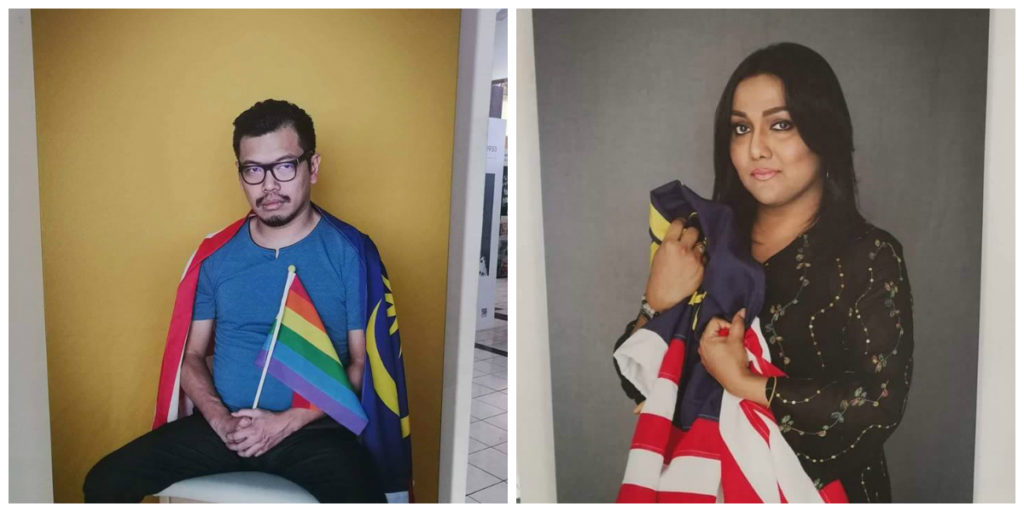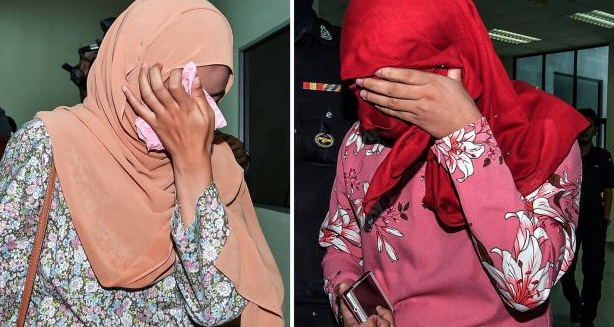EDITORIAL — On May 9, Malaysians elected a new government, one many believed would lead the country in a manner that reflected who we are as a population: diverse, multi-ethnic, multi-religious, but above all, members of a unified Malaysia.
At the time, the Pakatan Harapan (PH) coalition proposed a bold manifesto – one that envisioned a country without child marriage; without the corruption and race-based fear-mongering that had long buoyed the ruling government; where each citizen’s status as a Malaysian outweighed their respective, economic, religious or ethnic background.
In the immediate wake of the election upset, those ideas found a name: Malaysia Baru, or New Malaysia.
Sadly, events of recent days suggest the PH is not just failing to execute that manifesto, it’s failing the very citizens most in need of its promised reforms.
At least 100 members of the public attended the cruel spectacle, which proponents of the state’s Shariah law system hoped would “serve as a lesson,” in the words of the presiding judge.
Malaysia, a country once known the world over for our moderate brand of Islam and largely progressive populace, is now playing host to a brand of “entertainment” usually associated with countries on Human Rights Watch lists or read about in medieval history books.
Activists have not taken the issue lying down and are speaking out amid the deafening silence of a government that has suddenly gone quiet on every progressive issue they championed in the run-up to the election.
Latheefah Koya, executive director of Lawyers for Liberty, is incensed by the backward shift.
“This abhorrent ‘punishment’ does not bode well for the way Islam in Malaysia is progressing,” she said in a statement given to Coconuts KL.
“The Sharia Court had the audacity to justify its actions, stating that the caning does not ‘hurt’ the women or that the privacy of the offenders was ‘protected’ as they had private doors to enter and exit the court premises – an utterly ridiculous statement when you take into account that the punishment was carried out in the presence of 100 people, which included curious bystanders, not to mention the mental anguish that these women must have suffered through this ordeal.”
Dr. Mujahid Yusof Rawa, a minister in Prime Minister Mahathir Bin Mohamad’s office, has said the fact that members of the public were allowed to watch the sentence being meted out was something that “must be reconsidered.”
Speaking to reporters at his recent book launch, he retreated into legalese, parsing the various provisions related to how the punishment was executed, and sidestepping the question of an audience by suggesting even officials present could be “considered public.”
Everything was done in accordance with Islamic, and local laws, he assured them.
However, Ms Koya, is openly questioning the grounds for the Court’s punishment, highlighting that homosexuality is not a crime under Hudud (Islamic jurisprudence), and rather should be classified under the concept of ta’zir, which deals with lower-order offenses. In those instances, punishments are discretionary rather than mandatory.
Elaborating, she argues that in the lifetime of the Prophet, there was no record of anyone being publicly caned or punished for homosexuality. Calling the punishment “degrading,” “humiliating” and “un-Islamic,” the Lawyers for Liberty executive director asks where is the mercy of Islam, the protection of the privacy and dignity of the women?
What was the message that the Shariah courts were sending? Caning of women is largely unheard of, with a 2010 female caning case under the tenure of former PM Najib Razak only coming to light well after the fact.
For some, decoding the intent behind the public punishment is dispiritingly easy.
Chong Yee Shan, a human rights activist from Diversity Malaysia, sees it as fuel for groups that have already targeted the LGBTQ+ community with hate crimes and discriminatory comments.
“This sentence will only encourage perpetrators and aggressors to continue their hostility, violence and acts of aggression towards the community,” she said.
Fears that authorities might only be enabling, if not outright encouraging, a climate of fear among the LGBTQ+ community, come amid a spate of recent troubling incidents.
Two weeks ago, we reported that a long-standing bar with a large LGBTQ+ clientele was raided for the first time in its 30-year history, with JAWI officers alleging it was “drugs” they were after. Many saw this merely as a smokescreen for stoking fear among members of the community.
There were rumblings among club owners, who wondered if other recent raids had more to do with their hosting of LGBTQ+ friendly events than licensing issues.
Then, a prominent transgender community activist, Shukur Jani, who has campaigned bravely for equal rights under the law, was brutally assaulted by five men. Attacked with pipes and wooden planks, Ms Jani was hospitalized for five days, suffering several broken ribs, cuts, bruising, and a ruptured spleen.
While local media has dutifully reported on the incident, there was a decided lack of outrage. Likewise, there has been no public outcry demanding canings for the five individuals who brutally attacked, without motive, a woman simply living the life she is guaranteed as a citizen of this country.
Last month, two prominent LGBTQ+ activists saw their portraits removed from a local, non-political, photo exhibit, meant to showcase the national pride of exemplary Malaysians.

Both individuals whose portraits were taken down, Nisha Ayub, and Pang Khee Teik, have worked tirelessly to protect the rights of Malaysia’s citizens and raised the country’s profile internationally. In 2016, Ms Ayub was awarded the International Women of Courage Award by the US State Department.
Reflecting on Monday’s caning, Ms Ayub called the sentence a “violation of their rights as women,” one without basis in the country’s constitution.
Pang, meanwhile, told Coconuts KL that the punishment served only to illustrate that “it’s OK to punish people for being different, to criminalize something that harms nobody, and for the state to tell adults what we can do with our own body.”
In the immediate aftermath of the PH government coming to power, an atmosphere of nearly unbridled optimism, you may recall that the Youth Ministry’s press officer was forced to resign his post after online chatter brought up his previous work with LGBTQ+ organizations. That happened with nary a peep of protest from his employers.
It should have been a sign of the things to come.
Desperate, confusing times have always drawn us to seek parallels from the past. While many will peddle the adage that “history repeats itself,” we tend to look for forks in the road, watershed moments when unparalleled leadership took the reins into an unchartered, uneasy future.
Fifty years ago, civil rights leaders, activists and foot soldiers took the proposition that the rights of African-Americans were equal to those of their white brethren to the highest echelons of the United States government.
In an historic Supreme Court ruling unanimously voting for the desegregation of schools, lawyers representing the interests of African-American students were able to convince nine white judges, including an ex-Ku Klux Klansman, Hugo Black, that all citizens deserved equal treatment in education.
Morally, rationally, empirically, you couldn’t deny the rights shared by one group of people from another based on the color of their skin.
Living in present day Malaysia, we ask ourselves the same question: How can any other citizen, whether they be lawmaker, religious head, or ordinary citizen, in good conscience, deny another human the rights they already enjoy. That is, to love who they want to love, identify themselves as they please, and dress how they choose?
Malaysia Baru (New Malaysia) doesn’t seem to care about the messages being sent by allowing two women to be caned for the crime of loving each other, nor do they seem to care about the message that the legislature’s pussy-footing on the issue of child marriage seems to convey.
So, we’re asking, what do they care about?


